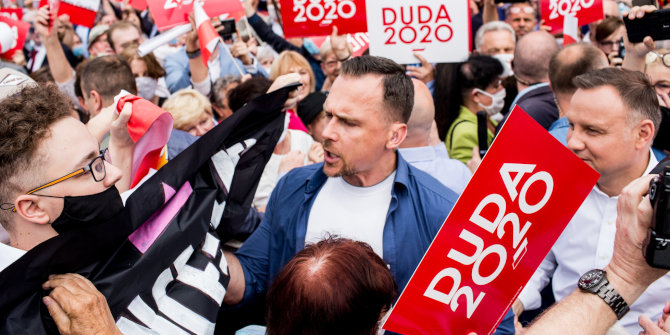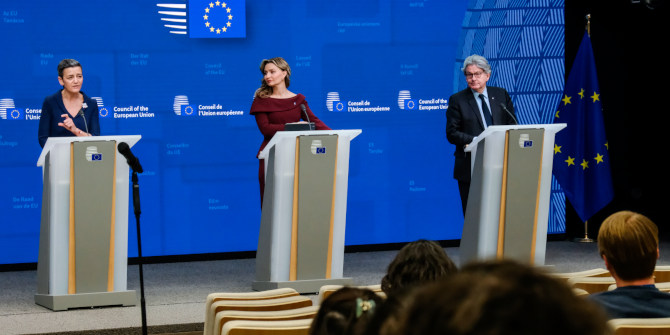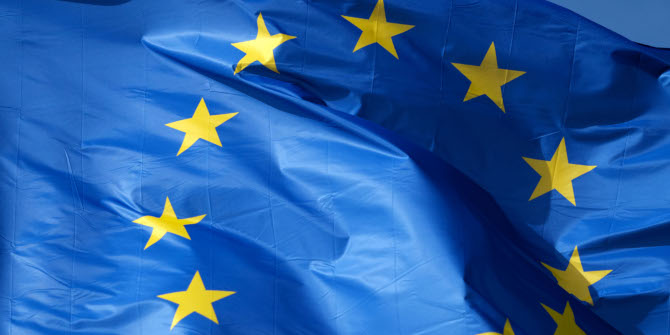European states provide security assistance to a variety of partners across the world. Drawing on a new study, Simone Tholens and Chiara Ruffa argue that much of this assistance continues to be structured by post-colonial practices rather than pragmatism.
Security assistance – supporting, training and equipping local “partners” to counter global threats – is a phenomenon of growing relevance. Established providers such as the US, the UK and France have doubled down on this approach to areas of conflict, especially in the Mediterranean but increasingly also in Africa, in addition to Ukraine after Russia’s invasion.
Other providers have also increasingly embraced security assistance, including Iran, Turkey, Russia, the UAE, China and the EU. Recipients range from stable states to “rebel groups”, each of which have developed tools and skills to tap into security assistance provider networks. A quick look at security assistance budgets shows how train and equip programmes, capacity building and the use of a variety of tools to support “local partners” have been front and centre in defence budgets and out of area operations in recent years.
Short of massive ground operations, these “indirect” forms of intervention are difficult to control and can produce complex conflicts, fragmentation and in some cases, coup-prone armies. In most cases, providers choose this option not so much because it has an outstanding track record of achieving stated objectives, but because it offers a relatively low-cost opportunity to maintain influence and relevance in an interconnected political marketplace in comparison to boots-on-the-ground operations or “doing nothing”. In this context it often appears to be “the least worst option available”.
The colonial present
However, these patterns of global security do not operate in a vacuum. In a recent study, we explore how the “colonial present” affects European practices of training and arming local partners in particular ways. Indeed, we find that there is something distinct to the way European providers cultivate relationships – a key feature of security assistance. These relationships, we argue, are embedded in enduring power relations that continue to shape, constitute and reproduce hierarchical and, at times, patriarchal relations, especially so in Mediterranean politics.
Europe’s approach differs in some ways from the US model of supporting local partners, as the American way is explicitly based on transactionalism, rather than patronage. For the US, well known for its vast arsenal of “vicarious warfare” strategies, security assistance relationships are based on pragmatic deal-making, where the investment is monetary and political, and where the return is for the local partner to “do the bidding” in countering global threats – be they terrorism, Chinese influence or organised crime.
For European security assistance, instead, we find that most states provide security assistance with the ambition to structure the world in terms consistent with patron-client, rather than principal-agent relationships. Patronage, in our understanding, entails a more complex ideational repertoire, where explicit normativities shape relationships to a greater extent than in the transactional model of security assistance. Patrons emphasise a shared normative commitment and are guided by it. Security assistance therefore becomes more about the security of the provider than about responding to global security needs.
European patronage
The transactional/patronage distinction, even if imperfect, helps demonstrate what is distinct about the European brand of security assistance. Security assistance is not primarily about strategic effects for European providers but principally about signalling enduring hierarchies and positions within them.
We identify three core practices that condition the relationship in modes of patronage: providers producing “the problem” and designing “the solutions” to be tackled; linking the “provider” and “recipients” in material dependencies; and contestation of these arrangements as “thin” adjustments rather than “thick” resistance. To illustrate the argument, we explore European engagements in the Mediterranean, drawing on insights from British, French, Italian and Swedish approaches to security assistance in Libya and Lebanon.
At a meso level, security assistance, locks Europe and the Middle East and North Africa together in a common frame, which is at its core a hierarchical relationship with Europe in the driving seat. Providers and recipients are mutually coproduced subjectivities in this frame. We observe that security assistance practices are deeply imbued with postcolonial legacies, logics, and mentalities, yet in ways that are distinct from both the “white saviour” logics of the colonial period and the modernisation theory of the liberal state building era.
Instead, security assistance in its contemporary manifestation is rhetorically aimed at building the capacity of local actors and enabling them to police global security threats. Work on post-interventions has captured this logic of indirect external assistance aimed at building local resilience and self-policing, in a way that not only shifts both the risk and the responsibility onto local actors but also effectively blurs the distinction between intervention and non-intervention. To this effect, security assistance engagements link different parts of the world together in one politico-economic paradigm that naturalises hierarchical representations and risks reproducing asymmetrical power relations.
Security assistance appears as an indirect form of intervention, but a closer look shows how it embodies a repackaging of hierarchies that has enduring structuring effects. As is evident also in other policy domains, until there is a collective and coordinated realisation that Europe’s relationships with “local partners” are shaped by these post-colonial practices, European security assistance will continue to reproduce patronage relationships. Indeed, it seems that the past is not the past at all.
For more information, see the authors’ accompanying paper in Mediterranean Politics
Note: This article gives the views of the authors, not the position of EUROPP – European Politics and Policy or the London School of Economics. Featured image credit: Bumble Dee/Shutterstock.com





